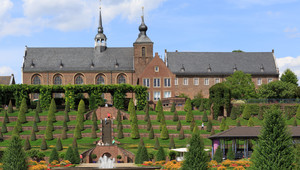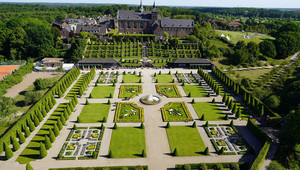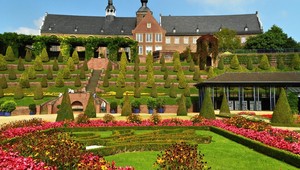Kloster Kamp
Today, this place is no longer an active monastery in the true sense of the word (with religious living together in a convent), but since its founding in 1123, Kamp has developed over many centuries into a "blessed" place. Here, people were enthusiastic about the faith and were thus able to inspire others.
Formative place
Numerous daughter and granddaughter monasteries were founded from here. Kamp Monastery shaped the spiritual and cultural life of the Lower Rhine and was for a long time one of the most important religious art and cultural sites in the region. Its scriptorium was famous. The "Kamper Bible" from 1312 is now owned by the Prussian Cultural Heritage Foundation in Berlin.
The monastery went through many ups and downs until it was abolished by Napoleon's secularization in 1802. From 1954 to 2002, the Carmelites lived and worked on Kamper Berg and continued the vocation of the place "blessedly".
New awakening
In 2003, the "Geistliche und Kulturelle Zentrum Kloster Kamp" (Spiritual and Cultural Center Kamp Monastery) was founded in order to ensure the lively further development. The "Center" ensures that Kamper Berg will continue to be a place of blessing. Its visitors can experience that God has a good word, a blessing for them and that they themselves can become a blessing.


